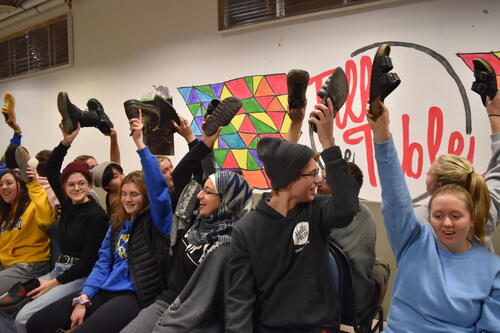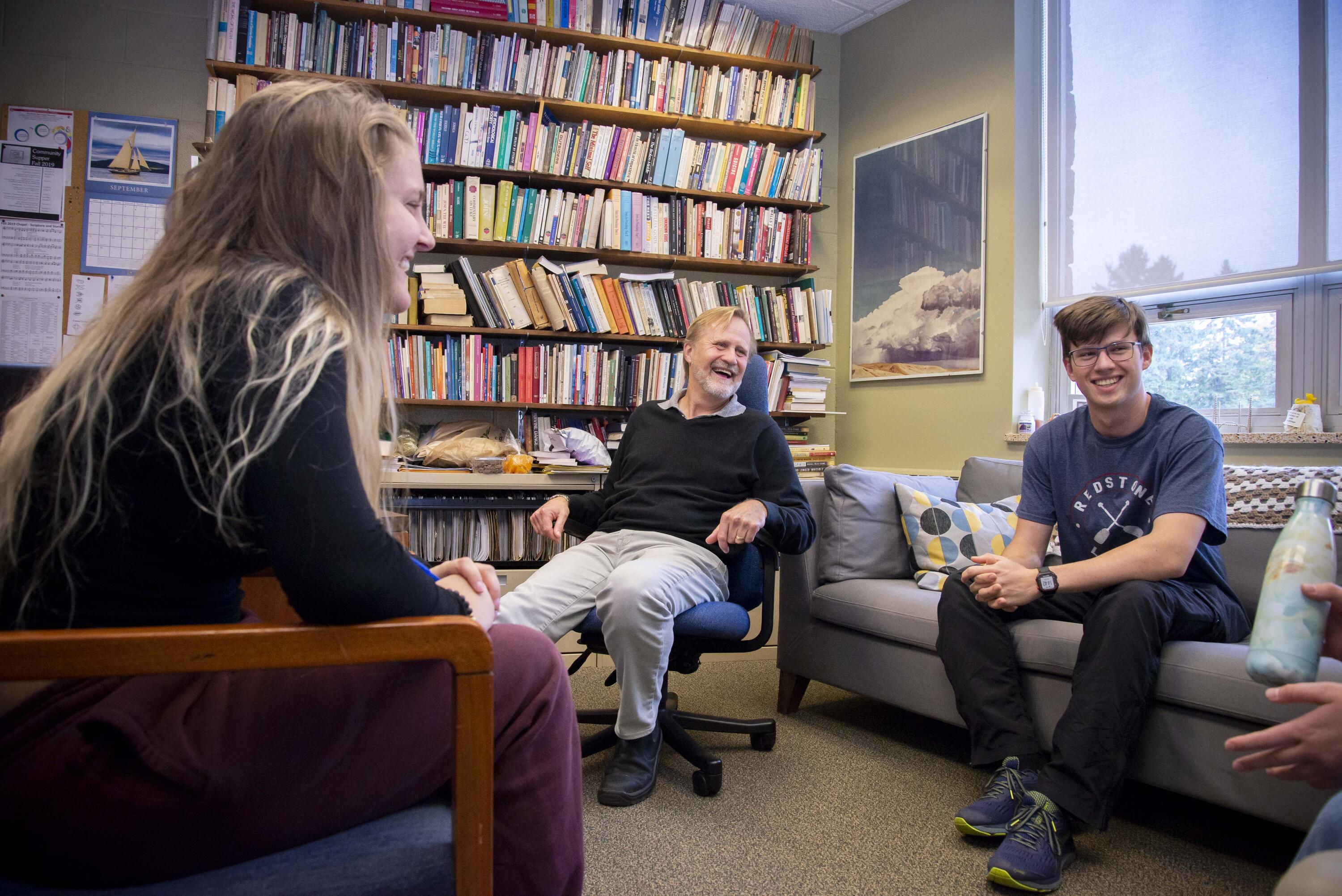 Ed Janzen’s interest in sociology arises from the conviction that any meaning and purpose in life, regardless of where and how they might be found, find their significance in living well with others.
Ed Janzen’s interest in sociology arises from the conviction that any meaning and purpose in life, regardless of where and how they might be found, find their significance in living well with others.
It’s likely one of the most awkward moments and places in the world—standing in what will become one of the most intimate, vulnerable places in your life, your residence room—waiting, on either side of the door, to meet a stranger with whom you may spend significant time. Is the risk born in that moment worth the world of opportunity and possibility that a university education affords? Time and experience say, “Yes!”
Social science research is not ambivalent about the importance of this relationship and the residential experience as a whole to success at university. When roommate relationships are satisfying and supportive, they have a positive effect on grades and stress management. Together with all of Grebel’s community-building habits like filling the table, all-college retreats, Student Council leadership, Community Suppers, Chapel, service projects and a good social life, the relational experience in residence has a protective effect on individuals by nurturing a sense of belonging and promoting good mental health.
Good community life at Grebel is not an accident. It is produced through strong, relational administration that includes everything from recruitment and application processes all the way through to Senior Reflections and Convocation. The roommate survey form is an example of this. It asks about sleep, neatness/messiness, study, leisure, and friendship aspects of life. Such surveys are often seen as tools for establishing compatibility based on similarity, but our experience and research says it’s more about intention and expectation—discovering and matching what our students expect of themselves and others, and their intentions in engaging the residential experience. The right blend of expectation, intention, personality, and supportive care in the residential community are fundamental to a successful university career.
However, the benefits of supportive residential experiences are no guarantee against difficult times and challenging relationships. In fact, difficulties and challenges prove the value of community for developing strong resiliency in life. While we do not necessarily go through life seeking adversity, neither should we avoid it at all costs. Research sees significant links between the successful management of adversity and the development of empathy and other prosocial traits and behaviours. Often, such adversity helps to define a worthy dream and reveals a community that supports its realization.
How does this happen? In the transition from high school to university and from the family home to independent living, a whole new web of relationships grows. What exactly is the worth of this relationship network? Is it worth the challenges and difficulties we might face? There are any number of obvious benefits, such as refining social etiquette, developing conversation skills, increasing flexibility, reciprocal encouragement and support, improved study habits, and discovery of new interests and new friends. Two benefits implicit in all of this go deep into shaping person and character: emotional self-regulation and expectation management.
Often, emotional self-regulation is not at the forefront of our minds in the familiar ebb and flow of family life. We often feel more freedom to be emotionally expressive with our families. This is a good thing, especially with such emotions as joy and affection. It can also be a good thing when our emotions are less positive, at least when accompanied by things like apology, forgiveness, and reconciliation. Meeting someone new in a close living environment like a residence is like pressing the reset button on emotional self-regulation. And that reset happens when the usual ‘external regulators’ (like parents) are at least one remove away. In the immediacy of the roommate or residence moment, the responsibility for emotional regulation pretty much falls 9 onto the shoulders of the student. It’s not exactly a ‘sink or swim’ moment, but it is an important moment for the internalization of responsibility. Successful emotional self-regulation, whether of positive or negative emotions, leads to greater self-understanding and maturity. The same can be said of the management of expectations.
Again, care and success requires a whole community to work together. A meaningful conversation with a friend, support of dons and campus hosts, friendliness of staff, care and counselling conversations with Student Services staff, accommodating and caring faculty, programs and policies aimed at healthy community living, and an engaged and compassionate community of alumni can all contribute.
So what does this effort look like when all is said and done? Matt Chase, a graduating senior, reflecting on the challenges and changes he has experienced in his years at Grebel, says it this way:
“I’ve learned (rather reluctantly, in some cases) about the necessity of diversity within a community. I’ve come to adopt a more rounded mindset and accepting mindset as I have community with Christians of differing denominational, theological, social, and gender backgrounds. That is to say, before you call someone a heretic, you should prepare food for them, eat with them, involve yourself in their life and enjoy fellowship with them. Be careful! You might just end up loving them.”

Grebel’s much-anticipated “Roommate Challenge,” where students dress up as each other and show how much they know about their roommate!
In the final analysis, it is this experience of love, despite differences, in the midst of challenging circumstances and among various successes that is Grebel’s goal in establishing and nurturing a residential community of scholars at UWaterloo. Former Grebel President Henry Paetkau would routinely share a postcard with new Grebelites and their families on Move-In Day. It was a picture of an ocean liner fastened to a dock with thick rope. The caption of the card read, “Lass mich los und halt mich fest.” (‘Set me free and hold me tight.’) It is an apt metaphor for embarking on a university career—the security of belonging in a safe harbor, while preparing for voyage on the high seas of university life.
This is what makes that awkward moment before meeting a roommate a moment worth perseverance and commitment. It takes courage. It takes trust and hope. It comes with care on the part of many. It is a risk. Is it worth it? Absolutely! Generations of Grebelites have proven this over and over!







